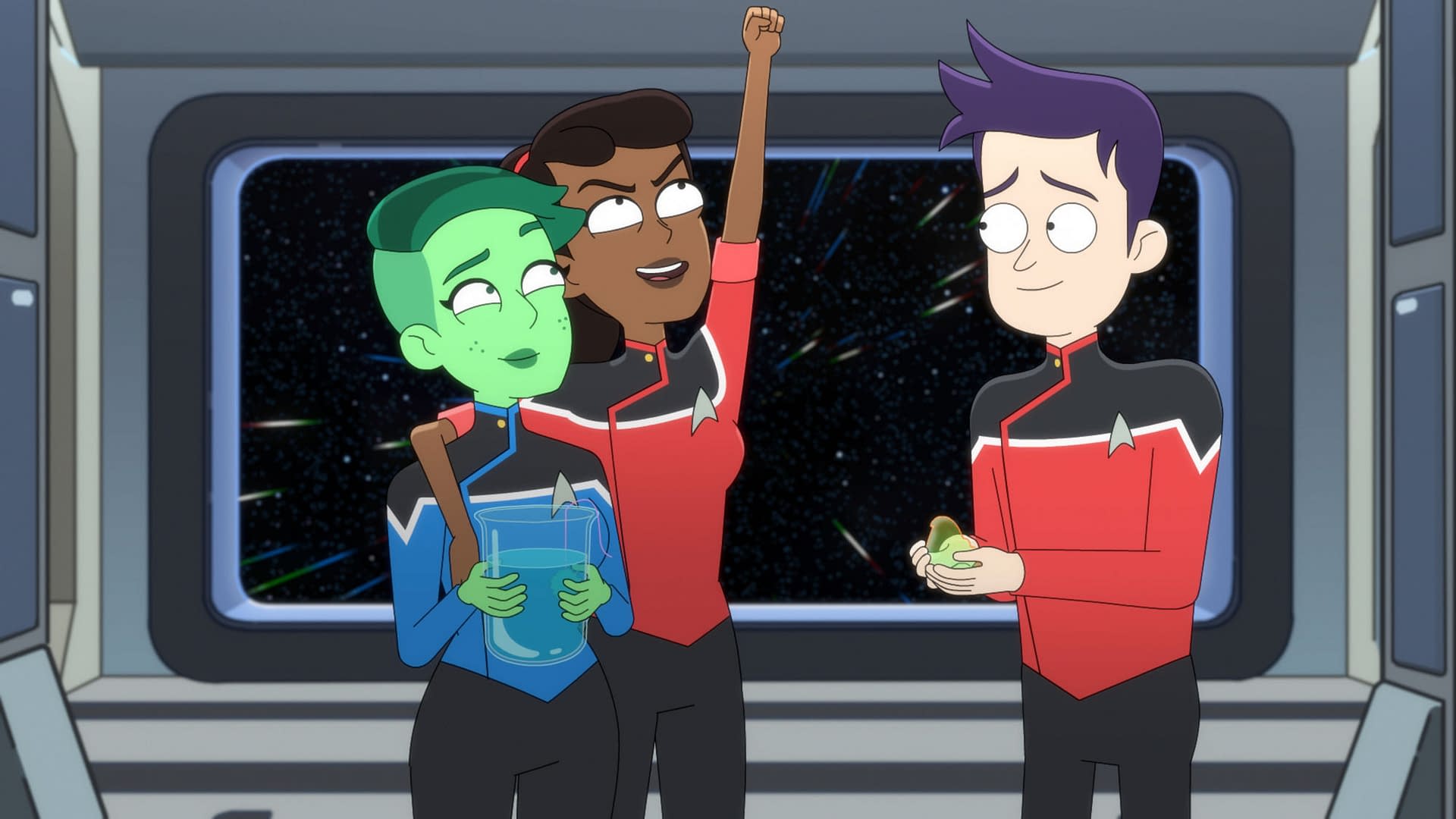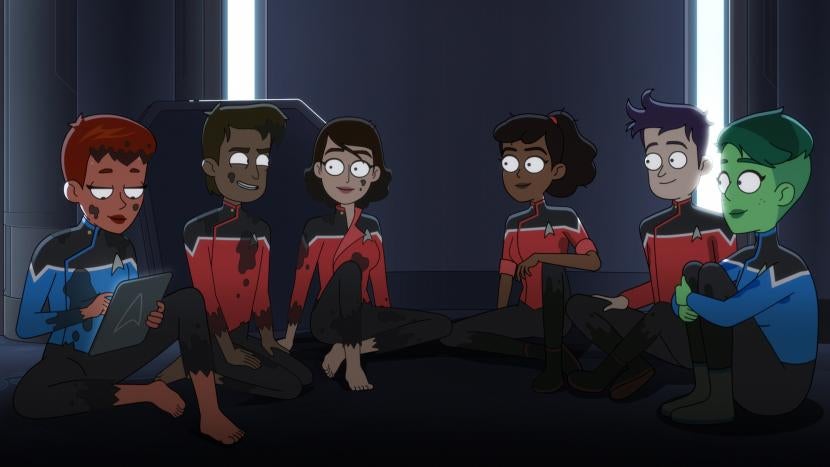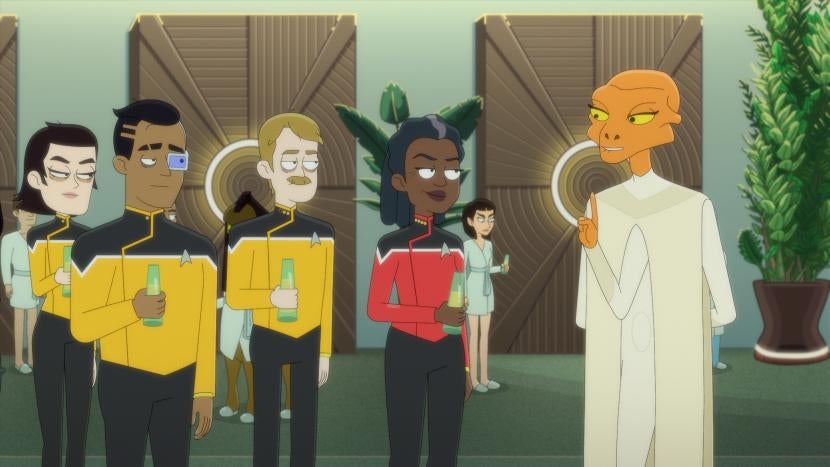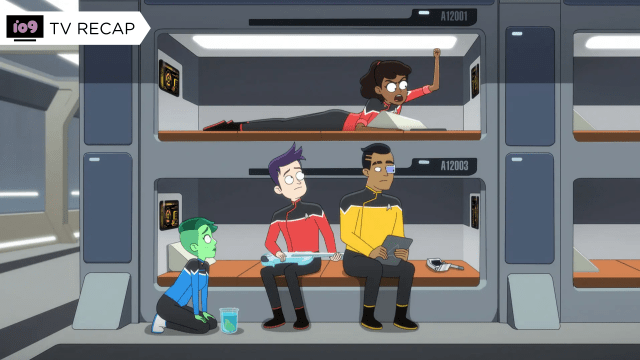Star Trek: Lower Decks’ third season has opened in a funny way. Not “ha-ha” funny, although there’s still plenty of that to be had. Instead, it’s of a more peculiar sort — the inescapable feeling that, no matter how good the gags remain, the show is unsure what steps forward it wants to take with its main characters.

In fact, the perhaps fittingly named “Room for Growth” feels like a bit of a step back, in a season so far that has felt like a partial reset for the status quo of Boimler, Mariner, Tendi, and Rutherford — who were on their way to growing beyond a bit of their Lower Decker status over the course of their arcs in seasons one and two. The show also feels like it’s pondering the question of just where exactly they should be in their journeys to evolve as Starfleet officers right now. A few weeks ago, it felt like Boimler and Mariner were starting to learn from each other after this reset, and then last week, the show veered sharply to reassure us that actually our heroes are still cool and well loved for everything they’ve gotten to do. Now, this week, there’s an even stranger lesson at the end of the day: our heroes are actually kind of jerks?

Let’s step back a bit first. “Room for Growth” splits the group across the A and B plots once more. After an homage to the TNG episode “Masks” puts the engineering division, Rutherford included, into overdrive, a guilty Captain Freeman whisks them away to a spa ship for mandatory R&R. Taking the opportunity of the captain’s absence in the A plot meanwhile, Boimler, Tendi, and Mariner hatch a plan to subvert a ship-wide lottery for better quality rooms on the upper decks in a race against time against their arch-nemeses in Delta shift.
The A-plot is where “Room for Growth” feels like it hits a snag that it’s kept hitting this season. As fun as it is to see Bomiler, Mariner, and Tendi worm their way through rarely-seen parts of the Cerritos to try and beat Delta Shift at their own game, there’s an underlying meanness to the whole endeavour that feels off for the trio. It becomes less about wanting a better living space for each other on the ship, and more about just denying Delta shift — who are likewise Lower Deckers — the pleasure, until the seeming “twist” of the story is that both groups get stuck in a maintenance shaft along the way, forcing them to sit down, actually talk to each other, and find out just how alike they really are. It’s a learning moment that lets our heroes understand that they are not the only ensigns on the ship — and that for all our focus on them, there are others in situations as shitty as theirs dealing with all this Star Trek weirdness too.

Or it would be, if not for the actual twist to be a twist in turn — the minute they can get out the maintenance shaft, the Delta Shifters race off to leave Boimler, Tendi, and Mariner behind, their understanding gone in an instant. They suck, and our heroes suck because they can only think of getting revenge (and only decide not to game the lottery in their favour when they do beat Delta Shift to the console they need to override, because they think winning a single room will break up their friendship and make the Deltas miserable). And when it turns out the Deltas win the lottery and decide to share the new, larger room they’ve got together, Mariner, Bomiler, Tendi, and now the returned Rutherford at the climax of the episode get to be bitter together that, blinded by their pettiness, they didn’t think of such an obvious idea either.
It just feels strange, a weird mishmash of some shades of recognition — our trio only makes it as far as they do thanks to Boimler embracing the boldness he aspired to a few weeks ago — and yet also regression, that these version of the characters we’re seeing could’ve leapt out of one of season one’s earliest episodes, not right now after all they’ve been through and ostensibly grown into. It’s made even stranger, in fact, by how much better the “minor” side of things in “Room for Growth” actually nails this idea. While Boimler, Mariner, and Tendi are gallavanting through the Cerritos, at the spa retreat an exhausted Captain Freeman finds herself rapidly spiralling as she attempts to get her engineers to just sit down and relax for a few hours, only for them to endlessly find ways to subvert her desires and work away at problems they can fix and tweak around the station. In the end, it drives her to a burnout state, prompting the saddened engineering crew to come together and scratch-build a relaxation booth for her — and to be honest with her that, while her heart was in the right place giving them mandatory relaxation, she wasn’t listening to what they actually needed and wanted to do to alleviate their stress.

It’s basically the same plot as the main thrust of the episode, just actually executed in a way that makes it feel like these characters have been having stories for two seasons before this and have grown beyond their comedic archetypes on the show. Freeman really cares for her crew, but was trying to make a square piece fit in a round hole out of pride and in showing that compassion. Her engineers love their jobs to a perhaps dangerous amount, and are willing to go the extra mile to show her just what they need to keep doing what they love doing. When each party is honest with each other, they come to a better, happier understanding of each other.
It’s such a strange thing to see this episode come to that kind of realisation and both simultaneously nail it and completely whiff it in its opposing narrative threads. But it’s perhaps fitting for a season that has gotten out on such an uncharacteristically uneven start for an otherwise incredibly confident show like Lower Decks. Unsure of what it wants to say about its characters between one joke and the next, the only thing we can hope is that there’s enough glimmer of what makes the show work still there week to week — and that soon enough it’ll be enough to get this season back on track.
Want more Gizmodo news? Check out when to expect the latest Marvel and Star Wars releases, what’s next for the DC Universe on film and TV, and everything you need to know about House of the Dragon and Lord of the Rings: The Rings of Power.
